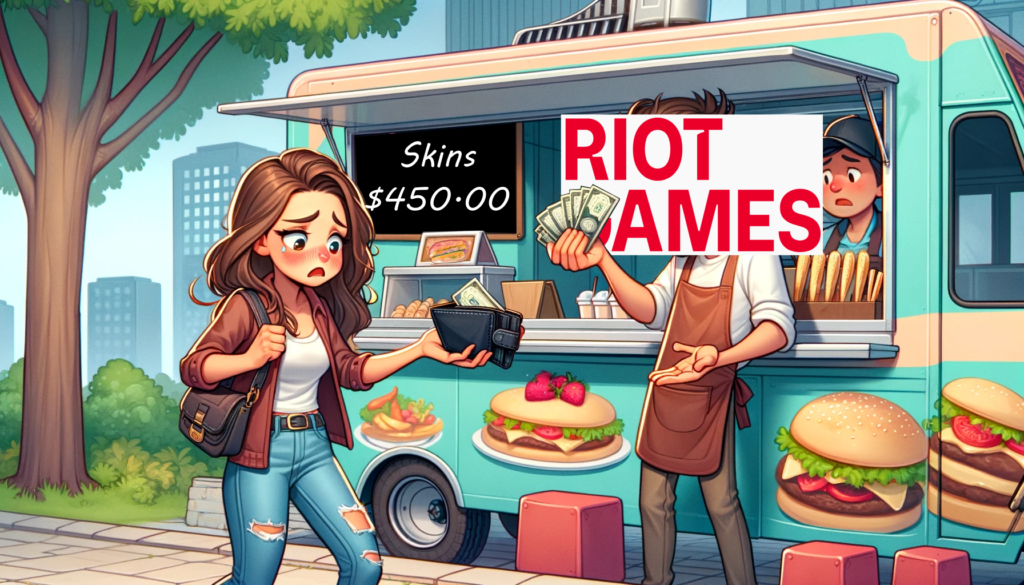In this edition of the GME3 we’re taking a look at some exciting news out of Alberta that could lead to some big igaming developments down the road for Wild Rose Country, a laundry list of new school boards getting involved in the ongoing social media lawsuit in Ontario, and fan uproar over exorbitant cosmetic costs in the popular game League of Legends. Read the full stories below!
Gambling
Alberta Puts it All On Red (Tape)
Alberta’s provincial legislature has passed a bill recognizing that the government has the authority to conduct and manage gaming in the province, in addition to Alberta Gaming, Liquor and Cannabis (the AGLC). Bill 16, also known as the Red Tape Reduction Statutes Amendment Act aimed to amend the provincial Gaming, Liquor and Cannabis Act, and was passed through the Alberta legislature over the past few weeks.
Nicky Gocuan, the Press Secretary for the Minister of Service Alberta and Red Tape Reduction, has confirmed that “specific amendments clarifying ministerial authority over gaming came into effect with Royal Assent.” Essentially, this change will allow the government to license third-party gaming operators to offer gaming services in Alberta in addition to the pre-existing PlayAlberta online sportsbook and casino, which is operated by the AGLC on behalf of the provincial government.
Minister Dale Nally received instructions from Premier Danielle Smith to explore new methods to expand online gaming and sports betting in the province, and Bill 16 seems to be the first major step forward in the initiative. The ministry plans to meet with all 47 First Nations and with the six First Nation casino operators in Alberta to gather feedback on the rollout of Alberta’s licensed iGaming operation. Gocuan also made it clear that they plan to look at best practices from other licensed gaming jurisdictions, like Ontario, for guidance
Earlier this month at SBC Summit North America, Bruce Caughill (Rush Street Interactive’s Managing Director of Canada) claimed that Alberta will soon be establishing a separate conduct-and-manage agency to oversee Alberta igaming, similar to how iGaming Ontario works in tandem with the AGCO. And, as Canadian Gaming Association President Paul Burns pointed out, Alberta has had some of the highest per-capita spending on gambling in Canada for many years, meaning that an expansion into regulated igaming will likely be hugely successful.
While we don’t have a timeline for when these changes will occur, a 2025 launch seems like the earliest we can likely expect.
Media
Schools Take “Class” Action
An additional five Ontario schoolboards (and two private schools) have joined the ongoing lawsuit against big social media companies like Meta, TikTok, and Snap. The suit alleges that their products have negatively rewired the way children think, behave and learn.
In a bulletin issued on Wednesday, Schools for Social Media Change, an umbrella group containing the plaintiffs in the suit, said that “The addictive properties of the products designed by social media giants have compromised all students’ ability to learn, disrupted classrooms and created a student population that suffers from increasing mental health harms.” As a result of this, the suit alleges that schools have been forced to devote serious resources including personnel, time, and funding to combat the “growing crisis.”
The suit was originally filed in March and included the public district school boards of Toronto, Peel and Ottawa-Carleton, as well as Toronto’s Catholic school board. This list has now grown to include:
Dufferin-Peel Catholic District School Board
York Catholic District School Board
Trillium Lakeland District School Board
Ottawa Catholic District School Board
District School Board of Niagara
Holy Name of Mary College School and Eitz Chaim (private schools)
Schools for Social Media Change argues that the mix of public, Catholic, and private schools in both urban and rural settings demonstrates that this is a “universal issue.” However, these social media giants are unlikely to admit wrongdoing that easily. These companies have defended their actions, with Meta claiming that it has “parents’ interests at heart” and TikTok maintaining that its app has “industry-leading safeguards” to ensure safe use by youth.
As the legal battle intensifies, the outcome of this lawsuit could have far-reaching implications for the relationship between social media platforms and educational institutions across Canada.
Entertainment
Riot’s Price Points Cause Riot
Riot Games, creators of genre-defining games like League of Legends and Valorant, have come under fire over their approach to microtransactions. The trouble began when Riot announced their new in-game event for League of Legends (LoL) known as the Hall of Legends, to commemorate the career of Lee “Faker” Sang-hyeok. Faker, who has been a mainstay of competitive LoL since his debut in 2013, is arguably the most popular player of all time, especially in his home country of South Korea where he has a significant following.
To celebrate his achievements Riot developed a series of “skins” (cosmetics that alter the look of your in-game character) dedicated to the player. However, players immediately noticed that the price point of these skins far exceeded the standard.
While the average skin costs around $10-20 (converted from LoL’s in-game microtransaction currency called “Riot Points” or “RP”), the base version of the “Immortalized Legend” collection released with the event starts at USD $40 and rapidly gets more expensive. The next tier of the collection jumps up to costing nearly USD $300 worth of RP, and the ultimate “Signature” edition of the skin will cost a shocking USD $450.
Riot has attempted to justify the high costs, even pre-emptively including an entry about how the bundles were priced in the event FAQ page, stating that “while more expensive, these versions are meant to be highly commemorative, with never-before-implemented features.”
But players aren’t happy. The vast majority of feedback from fans on social media has been negative, and the game’s subreddit has been dominated by discussion over the controversial pricing. This isn’t the first time Riot has come under fire for overcharging for in-game cosmetics. In August 2023 a similar issue occurred, with the release of a skin that would set players back USD $200 to obtain.
Riot argued that they were attempting to offer a greater range of products and fulfill an unmet demand for “rarity” within the game’s ecosystem. Fans were unhappy with this response, but it seems that Riot has not taken the feedback to heart.
Despite Riot’s attempts to justify the exorbitant prices, the backlash from the community suggests that the company has not learned from past mistakes, leaving many fans frustrated and disappointed.
GME Law is Jack Tadman, Zack Pearlstein, Lindsay Anderson, Daniel Trujillo, and Will Sarwer-Foner Androsoff. Jack’s practice has focused exclusively on gaming law since he was an articling student in 2010, acting for the usual players in the gaming and quasi-gaming space. Zack joined Jack in September 2022. In addition to collaborating with Jack, and with a keen interest in privacy law, Zack brings a practice focused on issues unique to social media, influencer marketing, and video gaming. Lindsay is the most recent addition to the team, bringing her experience as a negotiator and contracts attorney, specializing in commercial technology, SaaS services, and data privacy.
At our firm, we are enthusiastic about aiding players in the gaming space, including sports leagues, media companies, advertisers, and more. Our specialized knowledge in these industries allows us to provide tailored solutions to our clients’ unique legal needs. Reach out to us HERE or contact Jack directly at jack@gmelawyers.com if you want to learn more!
Check out some of our previous editions of the GME3 HERE and HERE, and be sure to follow us on LinkedIn to be notified of new posts, keep up to date with industry news, and more!




